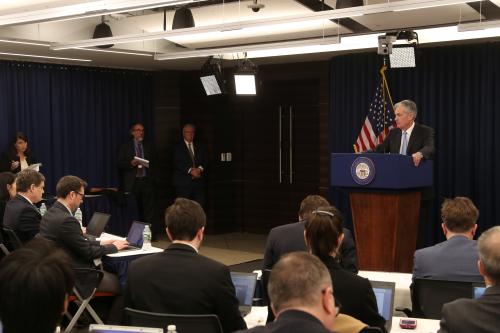Last week Oregon Sen. Ron Wyden became the chairman of the Senate Finance Committee. Even as a liberal Democrat, he has supported two key goals of corporate tax reform: reducing the U.S. corporate tax rate and repatriating corporate profits held abroad. Sen. Wyden’s challenge will be implementing these goals without increasing the federal debt.
Though there is widespread support for reducing the 35% statutory corporate tax rate, which ranks among the highest in the world, the reduction cannot be financed by the plan President Obama touted in his State of the Union address: closing tax “loopholes.” Congress would have to find $1.2 trillion in new tax revenue over the next 10 years to fund a 10% rate reduction. But politicians can realistically repeal only $200 billion in tax loopholes, including the favorable tax treatment of corporate jets, incentive fees and drilling costs.
That’s because tax preferences are popular. Most of the major existing preferences are intended to promote economic growth, so they are supported by both Democrats and Republicans. The four tax preferences that generate the largest revenue losses are: tax credits for research and development, special deductions for U.S. manufacturing facilities, accelerated depreciation for capital investments, and tax-exempt interest from municipal bonds.
Rather than fighting about political untouchables, legislators should change the tax treatment of foreign profits of U.S. corporations. Under current law, foreign profits are subject to a 35% U.S. tax, but that tax may be deferred indefinitely if those profits are kept abroad. U.S. corporations are sheltering almost $2 trillion in profits abroad, according to Audit Analytics.
The current tax system for foreign corporate profits benefits no American, except for tax lawyers. The U.S. Treasury receives little revenue from foreign profits kept abroad, which a company may not use to build U.S. facilities, acquire U.S. technology or pay U.S. dividends. Rather, U.S. corporations are given a perverse incentive: They are encouraged to move operations and employees overseas.
Politicians disagree about how to remedy this problem. Some Democrats want to end deferral and tax all foreign corporate profits at 25% or 30%. That would put U.S. corporations at a tremendous disadvantage compared with non-U.S. firms. Some Republicans want a pure territorial system: Foreign profits would be taxed only in the country where they are earned. Under that system, more facilities would be relocated to foreign countries with minimal corporate tax rates.
As a compromise, I propose a global competitiveness tax of roughly 17% on all foreign profits of U.S. corporations. The tax could not be deferred. However, if a U.S. corporation had already paid taxes of 17% or more to a foreign country, it would not be taxed again if these foreign profits were repatriated to the U.S.
For example, suppose Corporation X pays a 17% effective tax rate on its 2014 profits in the U.K. Since Corporation X is already paying 17% in taxes to the U.K., it would be allowed to move those profits anywhere in the world—including the U.S.—without being taxed again. Suppose Corporation Y, on the other hand, pays 12% on its 2014 corporate profits earned in Ireland. Then Corporation Y would promptly have to pay the difference, owing 5% in U.S. taxes on those Irish profits. After the company paid the tax, the foreign profits could be moved back to the U.S. without any additional corporate taxes.
Why 17%? This is the effective marginal rate paid, on average, by corporations in advanced industrial countries (excluding the U.S.’s exorbitant 35%). A global competitiveness tax would encourage U.S. corporations to put foreign profits to use in the U.S., while removing the incentive for companies to transfer foreign profits to tax havens.
In addition, Congress should enact a one-time transitional tax on pre-2014 foreign profits. The transitional tax rate should be lower than 17% because corporate executives relied on long-standing U.S. law to defer U.S. taxes on foreign profits indefinitely. A reasonable transitional tax rate would be 12% paid over 10 years on foreign profits earned before 2014 that are held abroad in cash or in other short-term investments.
This would raise substantial revenue for the Treasury—roughly $150 billion over 10 years, assuming U.S. companies held $1.3 trillion in short-term investments. A 17% global competitiveness tax would also keep revenues flowing—to the tune of $250 billion over 10 years, according to my analysis of government data—because companies could no longer defer paying taxes on profits earned in jurisdictions with low or no corporate tax rates.
If these $150 billion and $250 billion in new tax revenues were added to the $200 billion raised from closing loopholes, Congress would then have $600 billion to finance a 10-year reduction in the statutory corporate tax rate, bringing it down to 30% from 35%. And Congress could accomplish this without repealing major existing tax preferences.
A new tax regime and a lower rate would benefit companies and the government alike. It would allow multinationals to allocate foreign profits based on business factors, not government incentives. And companies of all sizes would benefit from a lower corporate tax rate. Most importantly, the change would help the U.S. attract more capital from across the globe—to build new facilities, finance new technologies and create more jobs.
The Brookings Institution is committed to quality, independence, and impact.
We are supported by a diverse array of funders. In line with our values and policies, each Brookings publication represents the sole views of its author(s).



Commentary
Op-edA Better Path to Corporate Tax Reform
February 18, 2014